Sarah Manguso appeared on The Bat Segundo Show #232. Manguso is most recently the author of The Two Kinds of Decay.
Condition of Mr. Segundo: Contemplating fifty-five additional states of decay.
Author: Sarah Manguso
Subjects Discussed: David Markson, sentences that originate in other formats, fan mail, whether a paragraph is truly a paragraph, problems with typesetting nomenclature, remembering personal moments at 1,000 words a day, word arrangement units (”WAUs”), themes vs. timeline, organic vs. inorganic writing, unrecognized planning mechanisms, thinking of the reader, Adam Thirlwell’s The Delighted States, syntactic barriers and foreshadowing meaning, mosaic tiles, the goofy perils of being called a poet, incidental metaphors, the engine of intelligence getting in the way, the uncertainty of employment, the solipsistic degrees of writing, stumbling upon a cohesive idea of what the universe entails, other memoirs of illness, categorization and after-the-fact marketing, reading fiction while writing, John Cheever’s Falconer, surveillance and paranoia, the alphabetical pursuit of hobbies, and the identity of the famous writer baffled by the idea of a hobby other than writing.
EXCERPT FROM SHOW:
 Manguso: I thought of the pieces as an arrangement in two phases. The first phase was completely chaotic and the second phase was orderly. And during the chaotic first draft phase, the project that I set myself was really just to try to remember everything I could remember about this nine-year period in my life. Just everything. Every individual memory that I could bring up. And after my latest revision had lasted seven years, after that time, it really did seem that the memories had become particulate. Like there really was just one memory that espoused the insertion of the first central line in my chest. And it really did seem to have hardened in my memory into this item, this thing, this chunk of this chapter. And so while I was first writing the book, I didn’t think about chronology. Mainly because I had no idea how to write a book about one thing. I’d never done it before. And I didn’t know anything about narrative or what should come first. I really just wrote the pages all as individual files. And once I couldn’t remember anything else, I printed them all out and tried to notate based on memory and based on asking people what months and what year each thing had happened. And then I just put them in chronological order.
Manguso: I thought of the pieces as an arrangement in two phases. The first phase was completely chaotic and the second phase was orderly. And during the chaotic first draft phase, the project that I set myself was really just to try to remember everything I could remember about this nine-year period in my life. Just everything. Every individual memory that I could bring up. And after my latest revision had lasted seven years, after that time, it really did seem that the memories had become particulate. Like there really was just one memory that espoused the insertion of the first central line in my chest. And it really did seem to have hardened in my memory into this item, this thing, this chunk of this chapter. And so while I was first writing the book, I didn’t think about chronology. Mainly because I had no idea how to write a book about one thing. I’d never done it before. And I didn’t know anything about narrative or what should come first. I really just wrote the pages all as individual files. And once I couldn’t remember anything else, I printed them all out and tried to notate based on memory and based on asking people what months and what year each thing had happened. And then I just put them in chronological order.
Correspondent: Well, there’s specific phrasing for some of these “thingies.” Pardon my…
Manguso: Let’s call them chapters now. I think that sounds more professional.
Correspondent: These particular word arrangement units. WAUs. Wows?
Manguso: Wows.
Correspondent: We’ll call them wows. Or waz.
Manguso: I’m going to call them chapters. But I like wow.
Correspondent: You often have text within text. With this italicization. But you have a particular timeline. Because you often use “the day before the decision I wrote” or “I wrote this three months after the diagnosis.” And so it seems that not only arranging these wows into themes, but also into a timeline. I’m wondering how you place prioritization upon a theme over a timeline. Were there certain circumstances? Was this entirely an organic process? Or was there just a lot of tinkering around with order and with rhythm? The way we were talking about this, it almost seems like this quarto of some sort.
Manguso: Well, I wish I knew. I’m not really sure how to differentiate an organic process from an inorganic process.
Correspondent: Okay. Let’s just say blindly intuitive vs. carefully planned and calculated.
Manguso: Well, at the risk of sounding difficult, I’m really trying my best to remember what it was like to write this book. But I made the thing. And the thing is a result of my guiding intelligence engaged with my memory. And I don’t know if I can really distinguish between the decisions that were more intellectual than intuitive. Or more intuitive than intellectual. I wish I knew. It is true that, after the book was done or after the final draft was done, it does seem that there were themes that had been inserted or injected into the book by some planning mechanism that I didn’t really recognize. But I think that’s kind of a familiar recognition to have after you make a thing. It makes sense in ways that you weren’t exactly planning. I’d rather not say that the whole thing is mysterious to me. But I think enough of it is that I’m hesitant to say, “Well, I meant to this, this, and this.” I don’t know what I really meant.
Correspondent: Well, I mean, how much should we be really dwelling upon dichotomies?
Download BSS #232: Sarah Manguso (MP3)


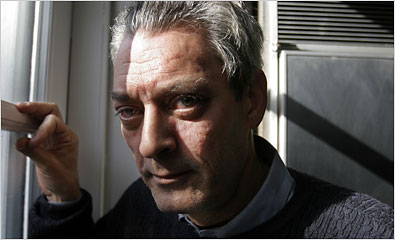 Correspondent: I wanted to ask you about something that I’ve long been interested in your books, and that is your concern for specific dollar amounts. Again, it plays up here in the Pulaski Diner, where everything is five dollars. And I also think about the scenario with M.R. Chang in Oracle Night, in which there’s the whole situation between the ten dollar notebook and the ten thousand dollar notebook.
Correspondent: I wanted to ask you about something that I’ve long been interested in your books, and that is your concern for specific dollar amounts. Again, it plays up here in the Pulaski Diner, where everything is five dollars. And I also think about the scenario with M.R. Chang in Oracle Night, in which there’s the whole situation between the ten dollar notebook and the ten thousand dollar notebook. 
 Correspondent: Well, going back to one of the many questions that I just asked you about the idea of concocting this alternative universe, was it a matter of working within a loose world here? I mean, in a way, this book reminded me very much of a Michael Moorcock alternative history, like the Hawkmoon books that he wrote, which have only a few existing elements which suggest what may have happened. But it’s largely an excuse. This particular book gave Moorcock the freedom to explore this notion of ideas that have spun off into other terribly mutated forms. And I wanted to ask how this idea of worldbuilding relates to this idea of exploring ideologies, of which I plan to ask you more about.
Correspondent: Well, going back to one of the many questions that I just asked you about the idea of concocting this alternative universe, was it a matter of working within a loose world here? I mean, in a way, this book reminded me very much of a Michael Moorcock alternative history, like the Hawkmoon books that he wrote, which have only a few existing elements which suggest what may have happened. But it’s largely an excuse. This particular book gave Moorcock the freedom to explore this notion of ideas that have spun off into other terribly mutated forms. And I wanted to ask how this idea of worldbuilding relates to this idea of exploring ideologies, of which I plan to ask you more about.
 Correspondent: There are a number of Yorkshire terms in which you take a verb meaning and you transfer it into a noun. And so everything is inverted. Even his communicative methods with the animals, as well as his particular idiosyncratic way of talking to the reader, which is presumably the only person he has to talk with aside from his parents and the like. And how this notion of inversion essentially announced itself. Was this more of a subconscious immersion in language on your part? Or a conscious decision to take a verb and transfer it to noun form and the like?
Correspondent: There are a number of Yorkshire terms in which you take a verb meaning and you transfer it into a noun. And so everything is inverted. Even his communicative methods with the animals, as well as his particular idiosyncratic way of talking to the reader, which is presumably the only person he has to talk with aside from his parents and the like. And how this notion of inversion essentially announced itself. Was this more of a subconscious immersion in language on your part? Or a conscious decision to take a verb and transfer it to noun form and the like?
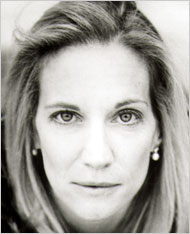 Harrison: I worked from a number of documents and sources. And I didn’t feel that I could do better than to begin with that exchange between Jody and the 911 operator. Because it really showed so much about who she was. The level of her diction. Her way of saying what had happened. “I think my father’s killed my parents and my sister.” And the 911 operator’s conversely saying, “What? Did he not like them or something?” And she’s saying, “Well, I guess.” It was an economical way of introducing a number of things that would come up later in the book. And it’s pretty compelling, I think.
Harrison: I worked from a number of documents and sources. And I didn’t feel that I could do better than to begin with that exchange between Jody and the 911 operator. Because it really showed so much about who she was. The level of her diction. Her way of saying what had happened. “I think my father’s killed my parents and my sister.” And the 911 operator’s conversely saying, “What? Did he not like them or something?” And she’s saying, “Well, I guess.” It was an economical way of introducing a number of things that would come up later in the book. And it’s pretty compelling, I think.

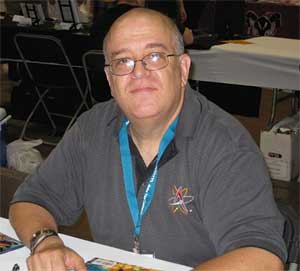 Correspondent: I’m wondering though if there has ever been an instance in your comic career, in which an editor has come to you and said, “Hey, Peter, the sales for this particular title are flagging. What can we do to raise things up?” Has this ever an influence?
Correspondent: I’m wondering though if there has ever been an instance in your comic career, in which an editor has come to you and said, “Hey, Peter, the sales for this particular title are flagging. What can we do to raise things up?” Has this ever an influence?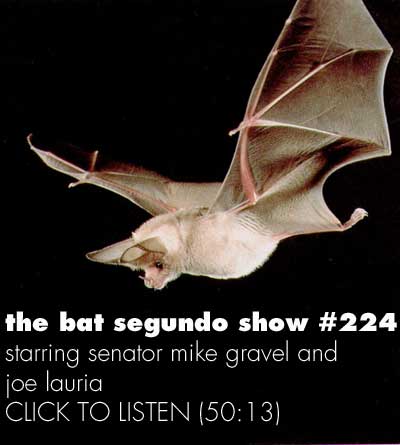
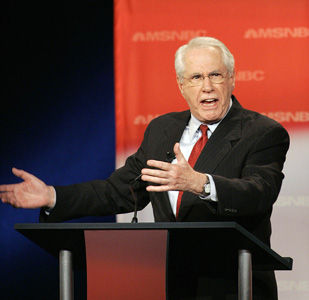 Correspondent: A question to both of you. The modifier that frequently ripples, so to speak, throughout this book in relation to war is “unnecessary.” You question Woodrow Wilson’s motives for getting us into World War I, writing that America was not threatened. Yet I must bring up the bombing of the Lusitania. And I must also point out that there was the Kingsland Explosion. The Zimmerman telegram. I mean, what is a necessary war? Was America really not at threat in World War I? Is this what you’re saying?
Correspondent: A question to both of you. The modifier that frequently ripples, so to speak, throughout this book in relation to war is “unnecessary.” You question Woodrow Wilson’s motives for getting us into World War I, writing that America was not threatened. Yet I must bring up the bombing of the Lusitania. And I must also point out that there was the Kingsland Explosion. The Zimmerman telegram. I mean, what is a necessary war? Was America really not at threat in World War I? Is this what you’re saying?
 Correspondent: But not every man, Faye, is going to sit down and slap thousands of dollars wanting to get laid like this.
Correspondent: But not every man, Faye, is going to sit down and slap thousands of dollars wanting to get laid like this.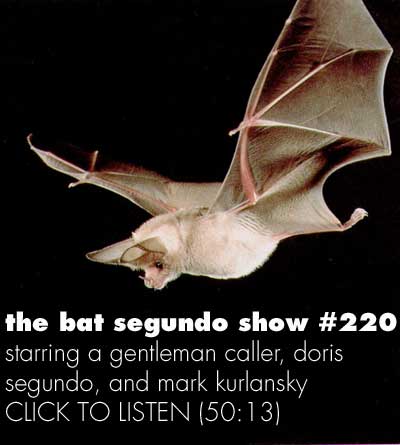
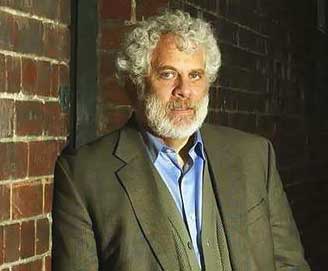 Correspondent: I’m wondering if it’s a matter of this obdurate Gloucester character that you allude to many times throughout the book. In fact, I was curious about the whole
Correspondent: I’m wondering if it’s a matter of this obdurate Gloucester character that you allude to many times throughout the book. In fact, I was curious about the whole 


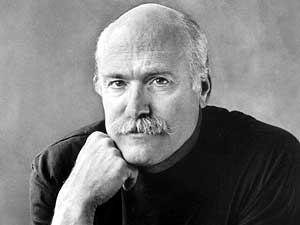 Correspondent: This idea of first-person narration that is somewhat removed — maybe this is more of a classical sense of the short story, in the sense that today, contemporary short stories are, as you point out, more of a gushing therapy session. Maybe that’s what we’re talking about.
Correspondent: This idea of first-person narration that is somewhat removed — maybe this is more of a classical sense of the short story, in the sense that today, contemporary short stories are, as you point out, more of a gushing therapy session. Maybe that’s what we’re talking about.
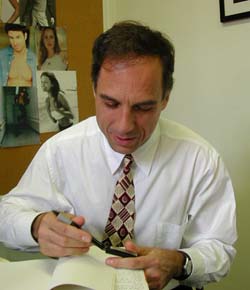 Correspondent: I’m wondering if certain artists may have changed their names because the comic book industry was considered a great calumny for many of these various artists and writers. Did you face a problem along those lines in tracking people down?
Correspondent: I’m wondering if certain artists may have changed their names because the comic book industry was considered a great calumny for many of these various artists and writers. Did you face a problem along those lines in tracking people down?